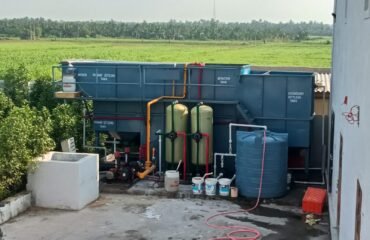Gandhinagar, the capital city of Gujarat, is a hub of government institutions, educational centers, and commercial activities. With its growing population and urban infrastructure, the efficient management of waste water is essential for the city’s sustainability and well-being. Sewage Treatment Plants (STPs) play a crucial role in treating sewage and ensuring a clean environment for Gandhinagar’s residents and visitors.
Importance of STPs in Gandhinagar
- Environmental Protection: STPs are vital for protecting Gandhinagar’s water bodies, including the Sabarmati River and local groundwater, from pollution caused by untreated sewage.
- Public Health: Proper sewage treatment reduces the risk of waterborne diseases, promoting a healthier living environment for the city’s population.
- Regulatory Compliance: STPs help Gandhinagar adhere to environmental regulations and standards, ensuring sustainable waste water management practices.
- Resource Conservation: Modern STPs facilitate the recovery of resources like water and nutrients from sewage, promoting a more efficient use of resources.
- Odor Control: Effective treatment processes in STPs help minimize unpleasant odors, contributing to a more pleasant and hygienic urban environment.
Why Choose Amrita Water Solution for STPs in Gandhinagar
- Customized Solutions: Amrita Water Solution offers tailored STP solutions designed to meet the specific requirements of hotels, residential complexes, commercial areas, and industrial zones in Gandhinagar.
- Advanced Technology: Our STPs incorporate advanced treatment technologies such as activated sludge processes, membrane filtration, and disinfection systems to achieve high-quality treated effluent.
- Efficiency and Reliability: We prioritize efficiency and reliability in our STP designs, ensuring consistent performance and minimal downtime.
- Environmental Sustainability: Our STPs are designed with a focus on environmental sustainability, including energy-efficient operations and eco-friendly treatment processes.
- Comprehensive Services: Amrita Water Solution provides end-to-end services, from project planning and design to installation, commissioning, and ongoing maintenance of STPs in Gandhinagar.
Conclusion
Amrita Water Solution is committed to delivering innovative and sustainable sewage treatment solutions for hotels and other establishments in Gandhinagar. Our expertise, advanced technology, and dedication to environmental stewardship make us the ideal partner for ensuring clean and healthy urban environments through effective waste water management.




